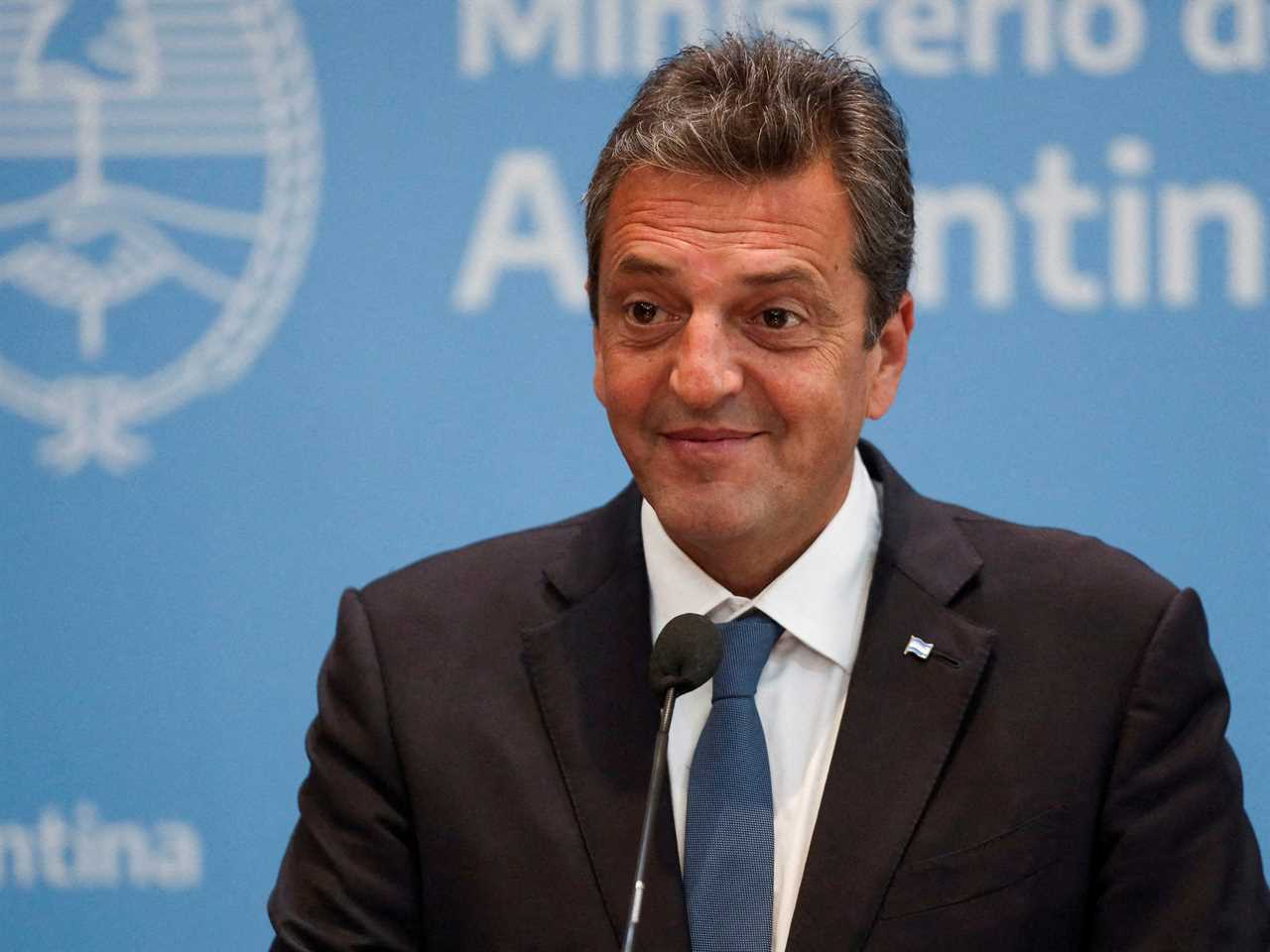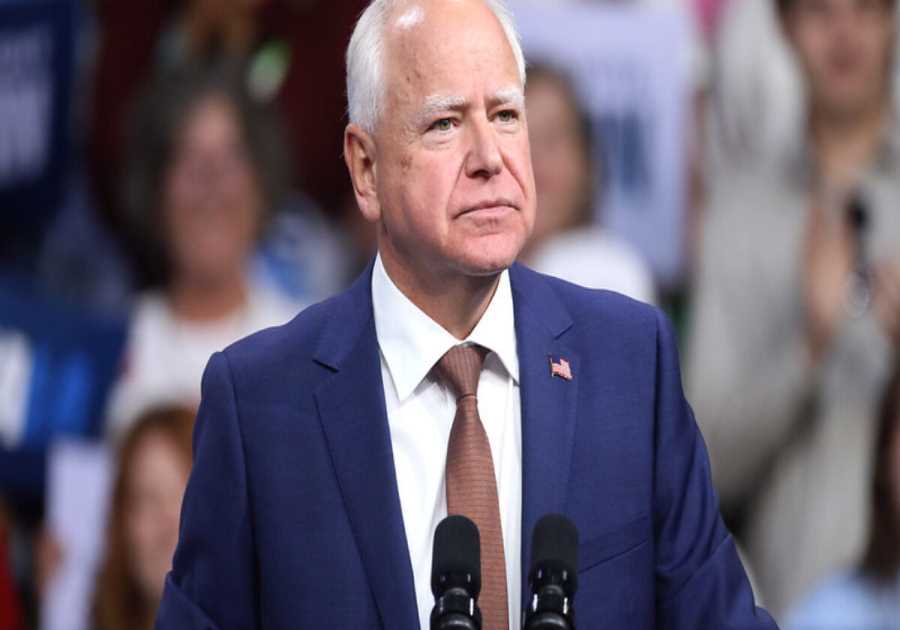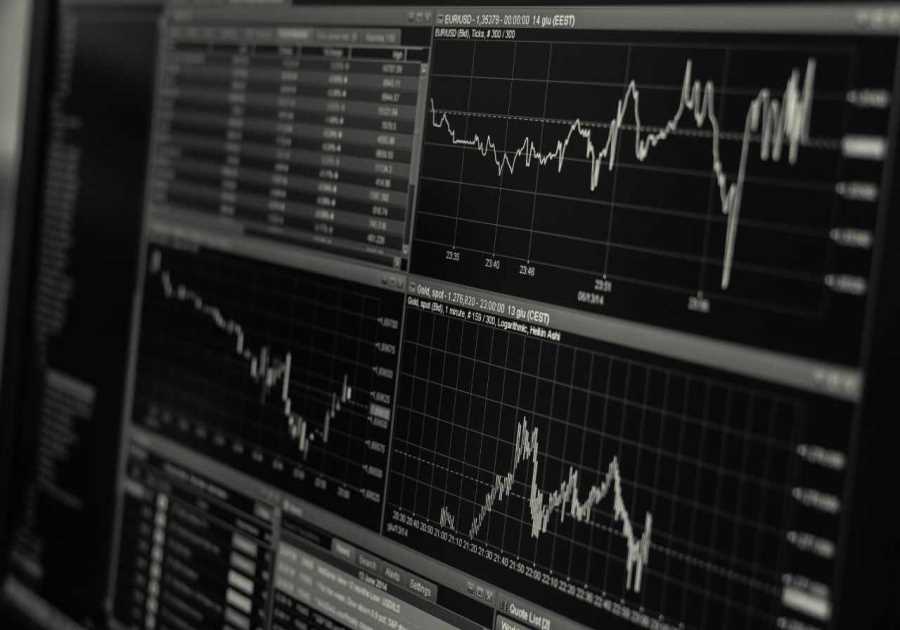
Rodrigo Abd/Gustavo Garello/AP Photo
- Argentina is set to elect a new president next weekend.
- Neither candidate is likely to be able to fix the country's broken economy.
- Politicians have failed to rein in triple-digit inflation, while the value of the peso has plummeted.
Argentina is getting ready to choose its next president — and the country's economy is a mess.
The ruling Union for the Homeland coalition's nominee Sergio Massa will square off against the far-right libertarian candidate Javier Milei in a run-off election next Sunday, with the vote deciding who has the right to govern the South American nation for the next four years.
Whoever wins will have to try to tackle chronic hyperinflation, stabilize currency markets, and prevent the country from slipping into its sixth recession of the past 10 years.
Here are seven reasons why Argentina's economy is such a disaster.
1. Triple-digit inflation
Soaring prices are perhaps the best-known problem plaguing Argentina's economy, but far from the only issue that policymakers are battling.
In February, year-on-year inflation as measured by the Consumer Price Index topped 100% for the first time in three decades. The rate has held above that level since, steadily climbing to hit 138% in September, according to the National Institute of Statistics and Censuses.
Beef and other foods have played a key role in driving up inflation in Argentina, a country that eats more red meat than any other in the world. In the largest city of Buenos Aires, the price of beef cuts jumped 72% over the 12 month period before June 2022, per official statistics.
The government has responded by rolling out price control programs and late last year ordered manufacturers and retailers to freeze the cost of thousands of goods, including food, drinks, and personal-hygiene products.
2. Plummeting peso
The Argentinian peso's crash in value has been both a symptom and a source of the country's economic woes in recent years.
The currency is managed by Argentina's central bank. In August, policymakers devalued it by 18% in a single day to 350 pesos per dollar after the ultraconservative, far-right Milei, who has pledged to do away with the peso and adopt the greenback, won a key primary vote.

Manuel Cortina/SOPA/Getty Images
But rather than accessing that official exchange rate, many have turned to using a free-floating, black-market currency that's known locally as the "dollar blue," which trades closer to 600 pesos per dollar.
The existence of multiple exchange rates has undermined the government and raised the risk that hyperinflation becomes entrenched, according to Oxford Economics' Lucila Bonilla, with many Argentinians now asking for wages in-line with CPI.
"The lack of credibility of very complicated exchange-rate regime generates a huge gap between the official and parallel rate, and the widespread indexation of wages and pensions to inflation generates inertia," she told Insider via e-mail.
The Central Bank of Argentina's decision to devalue the peso by 18% in August "translated instantly into two-digit monthly inflation rates," Bonilla added.
3. Mountains of debt
Debt is another issue that has plagued Argentina's economy in recent years.
Three years ago, officials reached a deal with the International Monetary Fund so that the country could climb out of its 9th-ever default, but worries about the deficit have lingered ever since.
Most banks have been reluctant to certify government-issued bonds as investment grade due to Argentina's long history of credit crises, with some now trading at around 30 cents on the dollar.
That means whoever does win next Sunday's run-off vote will find it difficult to access financing, limiting their ability to fund any potential spending projects they've promised.
4. Drought
Not every economic issue Argentina is facing has been of the government's own making.
This year, the country's crops have been ravaged by one of the worst droughts on record, and the loss of soy, corn, and wheat could cost farmers $14 billion, one economist told Reuters in March.
Agriculture made up over 6% of the Argentina's GDP last year, according to data from the World Bank. Exporting grain has also served as a key source of other currencies — so the drought has likely contributed to the instability that's plagued the peso, as well as the country's general economic malaise.
"To be fair to Argentina, some of the issues are beyond policymakers' control," Capital Economics' Kimberley Sperrfechter told Insider.
"There's been a constant drought which weighs heavily on agriculture, which is both an important part of the economy and crucial to bringing in FX reserves," she added.
5. Rolling recessions
It shouldn't be a surprise that a country plagued by so many problems has had its fair share of economic slumps.
By most indicators, Argentina is now teetering on the brink of a recession. The central bank expects the country's Gross Domestic Product (GDP) to shrink 2.8% this year, according to a recent survey of analysts, while activity plunged to its lowest level since 2020 back in May.
There's a human side to the economic crisis, as well.
Two-fifths of the country's population lives below the poverty line, per Reuters, and that figure is likely to rise if there's another downturn. Thousands of protesters took to the streets last year in a rally against the government's failure to address soaring inflation and tanking growth.
If, or more likely when, Argentina's economy slips into another recession, it'll be the sixth such occurrence in the past decade.
6. Ineffective central bank
Spare a thought for the beleaguered Central Bank of Argentina — because there's not much monetary policymakers can do to get the economy out of this mess.
The central bank has raised interest rates to an eye-popping 133%, but because that barely outpaces the rate that prices are actually rising, it is unlikely to be prove effective at reining inflation in.
With the rolling debt crisis meaning it has limited access to loans, the government has instead chosen to finance spending projects by asking the bank to print more money — widely regarded by economists as a policy that'll only serve to drive inflation even higher.
7. A broken political system
Perhaps no politician would be able to fix Argentina's economy — but neither of the candidates voters are set to pick between seem to be inspiring much confidence.
Massa has been Minister for the Economy for the past year and has failed to rein in inflation or rescue growth. He's the candidate backed by the Peronist party, which has won 10 of the past 13 elections.

Cristina Sille/Reuters
Meanwhile, Milei is a relative outsider who seems to model himself after right-wing firebrands like Donald Trump and Brazil's Jair Bolsonaro. His proposed policies include abolishing Argentina's central bank altogether and adopting the dollar, which economists have warned could end up pushing the country even closer to a default.
"Whoever becomes president, it's hard to overstate the economic challenges they'll inherit," Sperrfechter told Insider.
"Maybe there'll be steps in the right direction, but Argentina will likely continue to struggle."
Read More
By: [email protected] (George Glover)
Title: This is the world's next major election. The winner has to fix chronic hyperinflation and halt a 6th recession in 10 years.
Sourced From: www.businessinsider.com/economy-argentina-hyperinflation-drought-rolling-recession-dedollarization-javier-milei-peso-2023-11
Published Date: Sat, 11 Nov 2023 11:03:01 +0000
Did you miss our previous article...
https://trendinginbusiness.business/politcal/gaza-children-as-young-as-10yearsold-and-women-participated-in-massive-slaughter-of-jews-in-israel-on-oct-7
.png)





